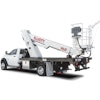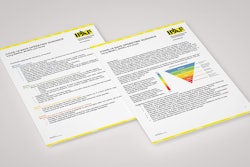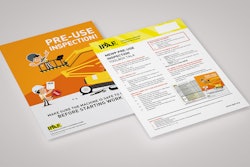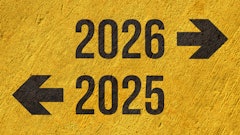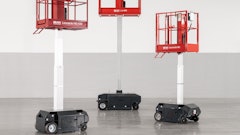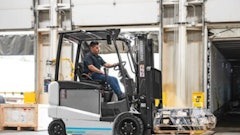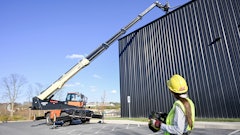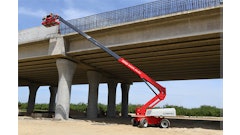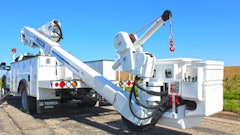
As economies around the world lift restrictions imposed to slow the spread of COVID-19, the International Powered Access Federation (IPAF) has modified its eLearning operator theory module to include facial recognition technology currently deployed as a security measure on its MEWPs for Managers eLearning course.
By using the camera on the candidate’s device or computer, this ensures only the trainee under assessment is able to undergo the eLearning.
This extra security is intended to give all IPAF-approved Training Centers additional flexibility and confidence to offer distance learning as an alternative to sessions in the classroom, where maintaining distance between trainees and the instructor might be more difficult.
IPAF-approved Training Centers are being given the option of moving the theory element of their MEWP operator courses to online-only eLearning, increasing the number of practical assessments they are able to carry out in a day and reducing the need for candidates to congregate in classrooms – a sensible precaution to reduce the risk from coronavirus.
Candidates can complete the theory element of their training online, which provides an alternative to face-to-face instruction and allows Training Centers to focus more on the practical element and assessment if they so wish. These can usually be conducted in well-ventilated depots and outdoor compounds, to allow physical distancing and help comply with risk management measures. IPAF’s Training Matrix has also been amended to allow Training Centers to conduct 12 practical assessments per day, up from a maximum of eight previously for candidates who have successfully completed the eLearning theory module.
Peter Douglas, CEO and MD of IPAF, says: “Many of our members delivering training are eager to return to offering courses on the scale they were doing before the coronavirus pandemic, but equally, they are very keen to ensure this is done as safely as possible and in line with the best guidance available to minimize risk of candidates or training center staff coming into contact with or spreading the virus.
“We think this new flexibility will be of benefit to our training providers as they look to reconfigure the way they work going forwards, and to bolster confidence that their staff and training candidates have the best range of options to allow them to undertake IPAF training with maximum confidence.
“We hope that by implementing these new measures across the board, our Training Centers will have increased confidence to issue the IPAF operator theory eLearning to candidates to complete before they arrive on site to undertake the practical element of their course and to undergo assessment, much of which can be conducted outdoors.”
Giles Councell, IPAF’s director of operations, who has led the development of IPAF’s ‘next generation’ eLearning, adds: “We have seen how effective the facial recognition technology is, as it has been used in our revamped MEWPs for Managers course since the beginning of 2019. It was a logical step to integrate this additional security measure into the existing IPAF operator theory eLearning module.
“The changes will allow our Test Centers to operate more flexibly while getting to grips with new ways of working to manage risks posed by coronavirus. We hope the changes will help IPAF Test Centers deal with any training backlog they may have in helping people gain or renew their PAL Card.”
For more information about IPAF training, including the range of courses and modules available via eLearning, visit www.ipaf.org/training, where you can also use the searchable map function to find your nearest IPAF Training Center.


